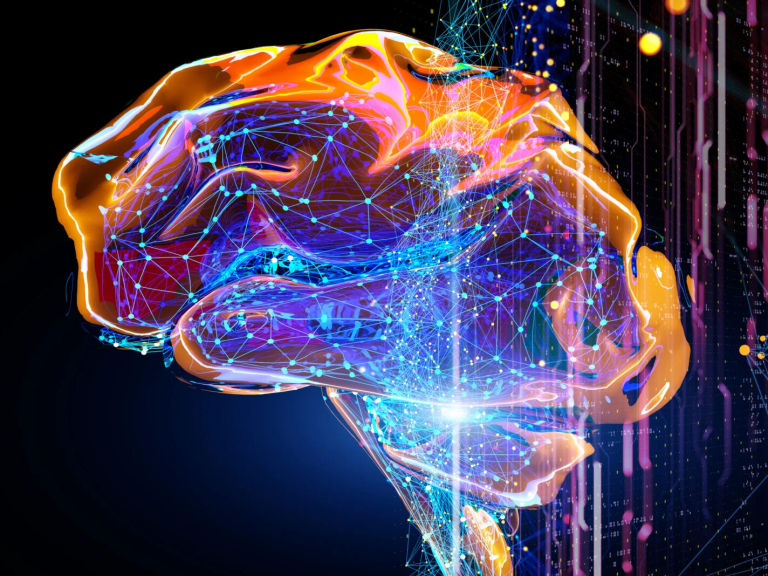Artificial Intelligence
Artificial Intelligence
From health care to education, policy to art, artificial intelligence is rapidly changing our world and our daily lives.
Are we ready?
The big questions
Explore more lingering questions about artificial intelligence throughout the page.
Harvard Business School faculty members discuss how artificial intelligence could reshape how work gets done.
A Harvard Kennedy School expert explores how regulation and other tools can ensure that AI tools work for everyone.
Harvard writers, animators, architects, musicians, and mixed-media artists explain whether they see AI as a threat, collaborator, or tool.
The futurists
Nikita Roy
As a data scientist, journalist, and AI expert, Nikita launched the Newsroom Robots podcast as a space for the news industry to actively discuss AI.
Kanaka Rajan
Kanaka joins Harvard’s Kempner Institute, where she will research artificial intelligence and machine learning to better understand the enduring mysteries of the brain.
Anant Agarwal
Anant Agarwal, founder of the online learning platform edX, explains that educators must learn to incorporate AI in their classrooms to properly prepare students for the future.
Shira Zilberstein
As a Ph.D. student in sociology, Shira explores the challenges to implementing AI in a way that improves access to quality healthcare while avoiding issues of privacy and bias.
Can AI get
an M.D.?
From diagnosing diseases to predicting patient outcomes, new AI models could have a major impact on the quality and efficiency of healthcare.
Some of the most pressing questions in medicine can be advanced through the application of AI in the clinic.”

- This image was created with generative AI
The future of healthcare
Harvard Medical School professor Jagmeet Singh’s new book explains how the practice of medicine will become increasingly virtual, aided by digital technologies like artificial intelligence, telehealth, and wearable devices.
The future of healthcareDoes AI have a place in schools?
Harvard Graduate School of Education has collected advice for teachers, parents, guardians, and students on how AI can be a helpful part of the learning experience.

-
Play with AI tools
Don’t be afraid to experiment and “geek out” with the technology.
-
Learn how AI actually works
AI is trained using existing data from the internet, which leads to the potential problem of “garbage in, garbage out.”
-
Use AI tools to spark the imagination
If students can turn to AI language models for quick and easy answers then there is a problem with the lesson.
-
Understand cheating with AI tools
People who cheat would have cheated without AI, the tools are just making it easier.
How can we future-proof the future?
Researchers across Harvard are exploring how we can better understand artificial intelligence to ensure we can utilize its potential and avoid harm.

Understanding how intelligence works
Working to advance the understanding of the nature of intelligence, the Kempner Institute is bringing researchers across disciplines like computational theory, AI and machine learning, neuroscience, and cognitive science together to develop next generation AI systems.
Empowering more users
During her Radcliffe fellowship, Fernanda Viégas is exploring new modes of human/AI interaction to help drive improvements in lay user agency and control of AI systems.
Creating technical oversight
New research and collaboration at the Berkman Klein Center is leading the way to developing effective mechanisms for accountable technical oversight.
Ensuring responsible use
Given how regulation lags technological capabilities and how quickly the AI landscape is changing, the burden of ensuring that these tools are used safely and ethically will often fall to the individual and companies.
You may also like





